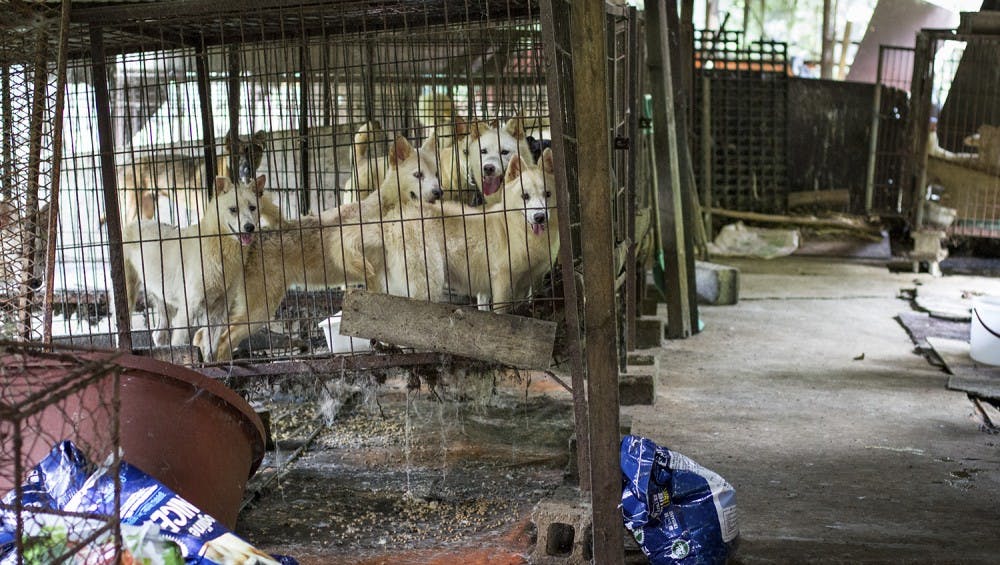The dogs were brought to the state after the Humane Society International rescued them from dog meat farms, where they were being raised for human consumption.
The Humane Society International started working in South Korea about two years ago to learn about both the dog meat trade and Korean culture, said Kelly O’Meara, co-director of Companion Animals and Engagement for the Humane Society International. The organization has since rescued 525 dogs and brought them to either the United States or Canada.
O’Meara said the dogs are kept in barren metal cages and receive small rations of food in the farms.
“They really are completely neglected from the day they’re born to the day they are slaughtered,” she said.
Once the Humane Society has rescued the dogs, they are placed in local shelters, O’Meara said. The shelters are then responsible for rehabilitating the dogs and setting them up for adoption.
The Watauga Humane Society in Boone received four of the dogs from the most recent group, though they are not yet available for adoption, said Laurie Vierheller, the executive director of Watauga Humane Society.
“We decided to provide them with a 14-day quarantine to let them adjust and kind of settle in and de-stress and to let their vaccinations take effect,” she said. “Just generally, they’ve been through a lot to get here.”
UNC Asian Studies Assistant Professor Ji-Yeon O. Jo said there is a portion of South Koreans who eat dog, but an overwhelming majority do not.




